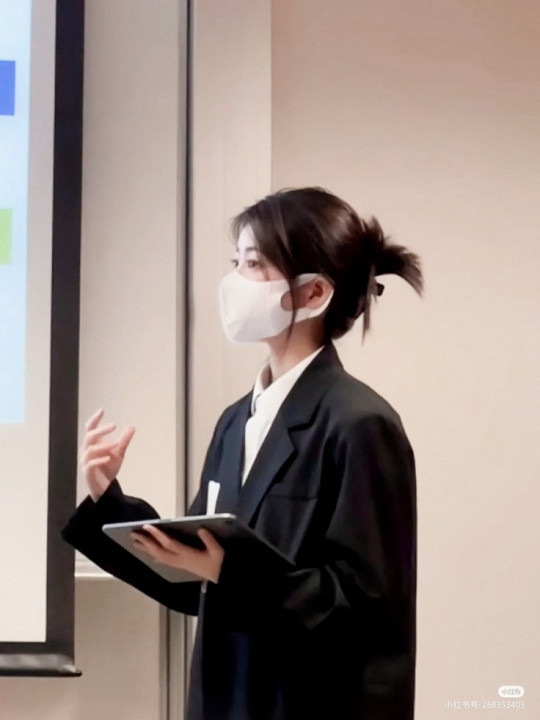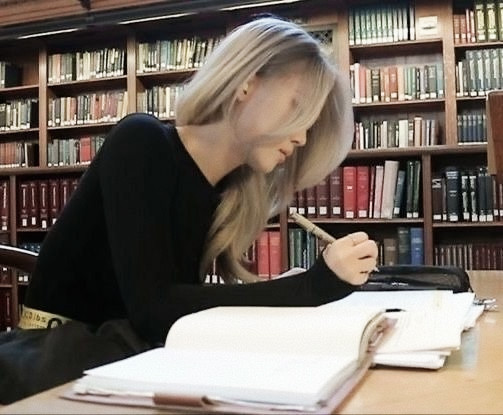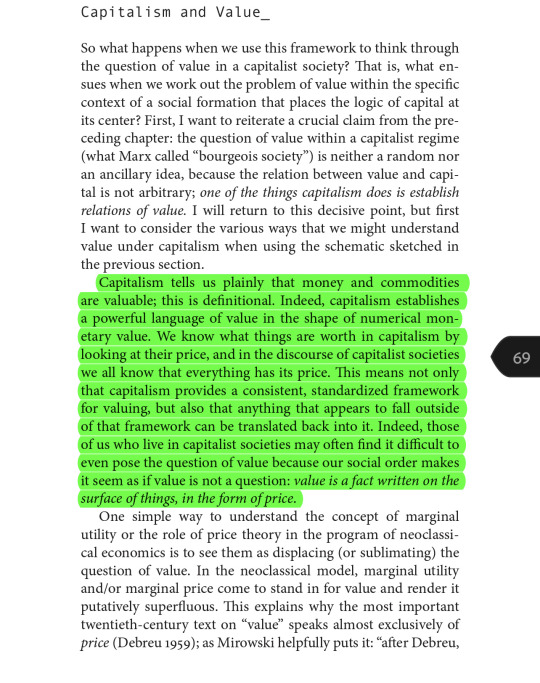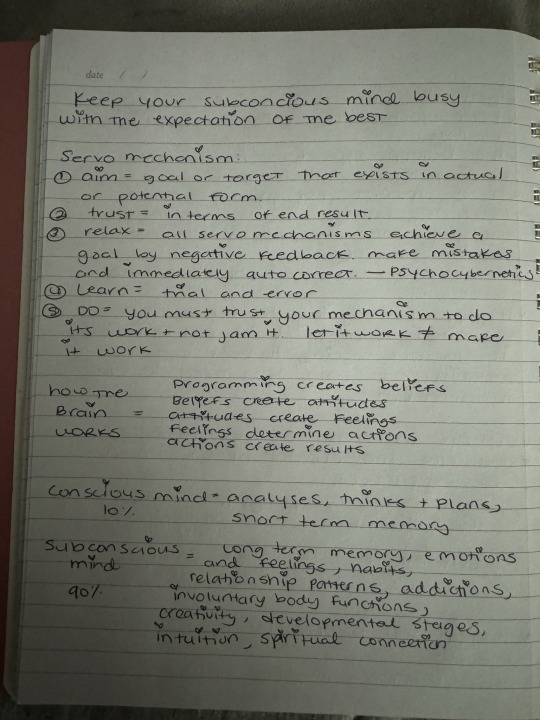#law of value
Text
Exchange is — the — key to Marx’s concept of value. To reiterate: “Value” only exists when there is an exchange of what labor produces. And, historically, the amounts exchanged have revolved around the embedded amount of labor. While capitalism is the “value economy” — one “primarily” based on commodity exchange and exchange value — this is not to say that value and an exchange of what labor produces did not exist at the margins or even more significantly “for 1,000’s of years”, or that Engels was “wrong” re the existence of value outside capitalism.
Most fundamentally, Marx explains much better what I’m trying to get at on “value before capitalism.” And per Marx’s suggestion, pre- capitalist commodity exchange, based on embedded labor time, was at the margins of society. Re capitalist society, however, all products that have use value are exchanged based on embedded labor time. And, of course, requires a “modified” understanding of the value of a commodity (which brings us to production price). Marx not only foretold virtually everything significant in contemporary, bourgeois economics— such as the dynamics of supply and demand on price that he is accused of ignoring— but did so more methodically and went far beyond…
#Marxism#Marx#Engels#value theory#value#law of value#value form#exchange#exchange value#commodity#money#price#production price#simple commodity production#capitalist commodity production#capitalism#socialism#communism
19 notes
·
View notes
Text
The law of value works in mysterious ways. For some Marxists, it underlies everything we need to know about capitalism.1 But, just as Karl Marx claimed he was not a Marxist, so too might he have said, “that’s not my law of value.”
It Is All about the Allocation of Labor
Every child knows that any nation that stopped working, not for a year, but let us say, just for a few weeks, would perish. And every child knows, too, that the amounts of products corresponding to the differing amounts of needs demand differing and quantitatively determined amounts of society’s aggregate labour. — Karl Marx
Every society must allocate its aggregate labor in such a way as to obtain the amounts of products corresponding to the differing amounts of its needs. As Marx commented, “In so far as society wants to satisfy its needs, and have an article produced for this purpose, it has to pay for it.… It buys them with a certain quantity of the labour-time that it has at its disposal.”4 It must allocate “differing and quantitatively determined” amounts of labor to the production of goods and services for direct consumption (Department II) and a similarly determined quantity of labor for the production and reproduction of means of production (Department I).
Every society, too, must allocate labor to what we may call Department III, a sector that produces means of regulation, and may contain institutions such as the police, the legal authority, the ideological and cultural apparatus, and so on.
Reproduction of a Socialist Society
Consider a socialist society—“an association of free [individuals], working with the means of production held in common, and expending their many different forms of labour-power in full self-awareness as one single social labour force.”5 Having identified the differing amounts of needs it wishes to satisfy, this society of associated producers allocates its differing and quantitatively determined labor through a conscious process of planning….. “A communal production, communality, is presupposed as the basis of production.”
Conscious planning—a visible hand, a communal hand—is the condition for building a socialist society.
Reproduction of a Society Characterized by Commodity Production
But what about a society that is not characterized by communality, a society marked instead by separate, autonomous actors? Such a society’s essential premise is the separation of independent producers.13
Rather than a community of producers, there is a collection of autonomous property owners who depend for satisfaction of their needs upon the productive activity of other owners.
“All-around dependence of the producers upon one another” exists, but theirs is a “connection of mutually indifferent persons.” Indeed, “their mutual interconnection—here appears as something alien to them, autonomous, as a thing.” Yet, if these “individuals who are indifferent to one another” do not understand their connection, how does this society go about allocating its “differing and quantitatively determined amounts of society’s aggregate labour” to satisfy its “differing amounts of needs”?14
Equalization of profit rates “presupposes the development of the credit system, which concentrates together the inorganic mass of available social capital vis-á-vis the individual capitalist.”27 That is, it presupposes the domination of finance capital: bankers “become the general managers of money capital,” which now appears as “a concentrated and organized mass, placed under the control of the bankers as representatives of the social capital in a quite different manner to real production.”28
Marx’s Auto-Critique
With respect to a particular review, Marx commented to Kugelmann in July 1868 that the need to prove the law of value reveals “complete ignorance both of the subject under discussion and of the method of science.” Every child, Marx here continued, knows that “the amounts of products corresponding to the differing amounts of needs demand differing and quantitatively determined amounts of society’s aggregate labour.” How could the critic not see that “It is SELF-EVIDENT that this necessity of the distribution of social labour in specific proportions is certainly not abolished by the specific form of social production!”
Marx wrote to Frederick Engels in January 1868 that “actually, no form of society can prevent the labour time at the disposal of society from regulating production in ONE WAY OR ANOTHER.”
The classical economists began by explaining relative value by the quantity of labor-time, but they “never once asked the question why this content has assumed that particular form, that is to say, why labour is expressed in value, and why the measurement of labour by its duration is expressed in the value of the product.”32 Their analysis, in short, started in the middle. This classical approach characterized Marx’s own early thought. It is important to recognize that Marx’s critique was an auto-critique, a critique of views he himself had earlier accepted.
Marx followed Ricardo in his early work. “The fluctuations of supply and demand,” Marx wrote in Wage Labour and Capital, “continually bring the price of a commodity back to the cost of production” (that is to say, to its “natural price”). This was Ricardo’s theory of value: the “determination of price by the cost of production is equivalent to the determination of price by the labour time necessary for the manufacture of a commodity.” Further, this rule applied to the determination of wages as well, which were “determined by the cost of production, by the labour time necessary to produce this commodity—labour.”35 The same point was made in the Communist Manifesto in 1848: “the price of a commodity, and therefore also of labour, is equal to its cost of production.”36
In the 1850s, however, Marx began to develop a new understanding. In the notebooks written in 1857–58, which constitute the Grundrisse, he began his critique of classical political economy. Marx concluded the Grundrisse by announcing that the starting point for analysis had to be not value (as Ricardo began), but the commodity, which “appears as unity of two aspects”—use value and exchange value.37 The commodity and, in particular, its two-sidedness is the starting point for his critique and how he begins both his Contribution to the Critique of Political Economy (1859) and Capital.38
The Best Points in Capital
“As regards value in general, classical political economy in fact nowhere distinguishes explicitly and with a clear awareness between labour as it appears in the value of a product, and the same labour as it appears in the product’s use value.”39 But that distinction, Marx declared to Engels in August 1867, is “fundamental to all understanding of the FACTS”! That “two-fold character of labour,” he indicated, is one of the “best points in my book” (and indeed, the best point in the first volume of Capital).40
The secret of the critical conception, the starting point for comprehension of political economy, the basis for all understanding of the facts—what made the revelation of the two-fold character of labor in commodities so important? Very simply, it is the recognition that actual, specific, concrete labor, all those hours of real labor that have gone into producing a particular commodity, in themselves have nothing to do with its value. You cannot add the hours of the carpenter’s labor to the labor contained in consumed means of production and come up with the value of the carpenter’s commodity. That specific labor, rather, has gone into the production of a thing for use, also known as a use value. Further, you cannot explain relative values by counting the quantity of specific labor contained in separate use values. If you do not distinguish clearly between the two-fold aspects of labor in the commodity, you have not understood Marx’s critique of classical political economy.
Marx’s Labor Theory of Money
“We have to perform a task,” Marx announced, “never even attempted by bourgeois economics.”43 That task was to develop his theory of money—in particular, to reveal that money is the social representative of the aggregate labor in commodities. For this, Marx demonstrated that (1) the concept of money is latent in the concept of the commodity and (2) that money represents the abstract labor in a commodity and that the manifestation of the latter, its only manifestation, is the price of the commodity.
We can approach grasping the value of a commodity only by considering it in a relation. The simplest (but undeveloped) form of this relation is as an exchange value—the value of commodity A is equal to x units of commodity B, where B is a use value. We always knew A as a use value but now we know the value of A from its equivalent in B.
Having established that the value of a commodity is revealed through its equivalent, Marx logically proceeds step-by-step to establish the existence of a commodity that serves as the equivalent for all commodities—that is, is the general form of value. It is a mini-step from there to reveal the monetary form of value: money as the universal equivalent, money as the representative of value.45 In short, once we begin to analyze a commodity-exchanging society, we are led to the concept of money.
The value of a commodity (that is, the homogeneous, general, abstract labor in the commodity) is represented by the quantity of money, which is its equivalent. Indeed, the only form in which the value of commodities can manifest itself is the money-form.
How do we satisfy our needs within capitalism? We buy them with the representative of the total social labor in commodities—money.
Ignorance both of the Subject under Discussion and of the Method of Science
The concept of capital, in short, does not drop from the sky. It is marked by the preceding categories. Since money is the representative of abstract labor, of the homogeneous aggregate labor of society, capital must be understood as an accumulation of homogeneous, abstract labor.
However, all accumulations of abstract labor are not capital. For them to correspond to the concept of capital, they must be driven by the impetus to grow and must have self-expanding value (i.e., M-C-M´). How is that possible, however, on the assumption of exchange of equivalents? Where does the additional value, the surplus value, come from? The two questions express the same thing: in one case, in the form of objectified labour; in the other, in the form of living, fluid labor.56
The answer to both is that, with the availability of labor power as a commodity, capital can now secure additional (abstract) labor.…because by purchasing labor power, capital now is in a relation of “supremacy and subordination” with respect to workers, a relation that brings with it the “compulsion to perform surplus labour.”57 That compulsion, inherent in capitalist relations of production, is the source of capital’s growth.
…The ratio of surplus labor to necessary labor—the rate of exploitation—rises.
#emphasis my own#filed under: marxism#filed under: political economy#filed under: capitalism#law of value#marx
1 note
·
View note
Text
the thing about art is that it was always supposed to be about us, about the human-ness of us, the impossible and beautiful reality that we (for centuries) have stood still, transfixed by music. that we can close our eyes and cry about the same book passage; the events of which aren't real and never happened. theatre in shakespeare's time was as real as it is now; we all laugh at the same cue (pursued by bear), separated hundreds of years apart.
three years ago my housemates were jamming outdoors, just messing around with their instruments, mostly just making noise. our neighbors - shy, cautious, a little sheepish - sat down and started playing. i don't really know how it happened; i was somehow in charge of dancing, barefoot and laughing - but i looked up, and our yard was full of people. kids stacked on the shoulders of parents. old couples holding hands. someone had brought sidewalk chalk; our front walk became a riot of color. someone ran in with a flute and played the most astounding solo i've ever heard in my life, upright and wiggling, skipping as she did so. she only paused because the violin player was kicking his heels up and she was laughing too hard to continue.
two weeks ago my friend and i met in the basement of her apartment complex so she could work out a piece of choreography. we have a language barrier - i'm not as good at ASL as i'd like to be (i'm still learning!) so we communicate mostly through the notes app and this strange secret language of dancers - we have the same movement vocabulary. the two of us cracking jokes at each other, giggling. there were kids in the basement too, who had been playing soccer until we took up the far corner of the room. one by one they made their slow way over like feral cats - they laid down, belly-flat against the floor, just watching. my friend and i were not in tutus - we were in slouchy shirts and leggings and socks. nothing fancy. but when i asked the kids would you like to dance too? they were immediately on their feet and spinning. i love when people dance with abandon, the wild and leggy fervor of childhood. i think it is gorgeous.
their adults showed up eventually, and a few of them said hey, let's not bother the nice ladies. but they weren't bothering us, they were just having fun - so. a few of the adults started dancing awkwardly along, and then most of the adults. someone brought down a better sound system. someone opened a watermelon and started handing out slices. it was 8 PM on a tuesday and nothing about that day was particularly special; we might as well party.
one time i hosted a free "paint along party" and about 20 adults worked quietly while i taught them how to paint nessie. one time i taught community dance classes and so many people showed up we had to move the whole thing outside. we used chairs and coatracks to balance. one time i showed up to a random band playing in a random location, and the whole thing got packed so quickly we had to open every door and window in the place.
i don't think i can tell you how much people want to be making art and engaging with art. they want to, desperately. so many people would be stunning artists, but they are lied to and told from a very young age that art only matters if it is planned, purposeful, beautiful. that if you have an idea, you need to be able to express it perfectly. this is not true. you don't get only 1 chance to communicate. you can spend a lifetime trying to display exactly 1 thing you can never quite language. you can just express the "!!??!!!"-ing-ness of being alive; that is something none of us really have a full grasp on creating. and even when we can't make what we want - god, it feels fucking good to try. and even just enjoying other artists - art inherently rewards the act of participating.
i wasn't raised wealthy. whenever i make a post about art, someone inevitably says something along the lines of well some of us aren't that lucky. i am not lucky; i am dedicated. i have a chronic condition, my hands are constantly in pain. i am not neurotypical, nor was i raised safe. i worked 5-7 jobs while some of these memories happened. i chose art because it mattered to me more than anything on this fucking planet - i would work 80 hours a week just so i could afford to write in 3 of them.
and i am still telling you - if you are called to make art, you are called to the part of you that is human. you do not have to be good at it. you do not have to have enormous amounts of privilege. you can just... give yourself permission. you can just say i'm going to make something now and then - go out and make it. raquel it won't be good though that is okay, i don't make good things every time either. besides. who decides what good even is?
you weren't called to make something because you wanted it to be good, you were called to make something because it is a basic instinct. you were taught to judge its worth and over-value perfection. you are doing something impossible. a god's ability: from nothing springs creation.
a few months ago i found a piece of sidewalk chalk and started drawing. within an hour i had somehow collected a small classroom of young children. their adults often brought their own chalk. i looked up and about fifteen families had joined me from around the block. we drew scrangly unicorns and messed up flowers and one girl asked me to draw charizard. i am not good at drawing. i basically drew an orb with wings. you would have thought i drew her the mona lisa. she dragged her mother over and pointed and said look! look what she drew for me and, in the moment, i admit i flinched (sorry, i don't -). but the mother just grinned at me. he's beautiful. and then she sat down and started drawing.
someone took a picture of it. it was in the local newspaper. the summary underneath said joyful and spontaneous artwork from local artists springs up in public gallery. in the picture, a little girl covered in chalk dust has her head thrown back, delighted. laughing.
#writeblr#warm up#this is longer than i wanted i really considered removing that part about myself and what i went thru#but i think it really fucking bothers me that EVERY time i talk about being an artist#ppl assume i just like. had the skill and ability to drop everything and pay for grad school.#like sir i grew up poor. my house wasn't a safe space. i gave up a FREE RIDE TO LAW SCHOOL. for THIS. bc i chose it.#was it fucking hard? was i choosing the hard thing?? yes.#but we need to stop seeing artists as lazy layabouts that can ''afford'' to just ''sit around and create''#when MANY - if not MOST - of us are NOT like that. we have to work our fucking ASSES off. hard work. long and hard work#part of valuing artists is recognizing the amount we sacrifice to make our art. bc it doesn't just#like HAPPEN to us. also btw it rarely has anything to do with true talent.#speaking as someone with a chronic condition i hate when ppl are like u have it easy. like actively as i'm writing this my hands r#ACTIVELY hurting me. i haven't been posting bc my left hand was curled in a claw for the last week#this isn't fucking luck. after a certain point it's not even TALENT. it's dedication & sacrifice.#''u get to flounce around and do nothing with ur life'' is a narrative that is a direct result of capitalism#imagine if we said that about literally any other profession.#''oh so u give up 10 yrs of ur life to be a doctor? u sacrifice having a social life and u get SUPER in debt?#u need to work countless hours and it will often be thankless? well i wish i was that lucky''#we should be applying that logic to landlords ONLY#''oh ur mom and dad gave u the money to buy a house? and all u did was paint it white and rent it? huh.''
10K notes
·
View notes
Text
The Law of Value: 5 Things You Should Know about the Universal Law of Value.
Welcome, dear readers, to another enlightening journey through the realm of Universal Laws.
In this guide, we’re about to unveil the fascinating intricacies of the Universal Law of Value. Brace yourself for a transformative exploration that promises to empower you, inspire you, and lead you on a path towards manifesting the life you truly deserve.
As always, here are the Universal Laws we already…

View On WordPress
#abundance mindset#aligning actions with values#authenticity#balance#empowerment#law of giving and receiving#law of value#manifestation#manifesting prosperity#personal growth#roadmap to empowerment#self-worth#setting healthy boundaries#transformative journey#universal law#universal law of value#universal laws
1 note
·
View note
Text
does anyone else form their headcanons of marinette and adrien largely on the basis of "they have to be opposite each other"? like, creation and destruction, yin and yang, etc. like Marinette being late all the time and sleeping through her alarms? so she's probably a deep sleeper? So that means, by the laws of my lovesquare headcanons according to my brain, Adrien has to be a light sleeper. Marinette is a chaotic creative person and I can imagine her just having so much STUFF all around and living in organized chaos. so therefore Adrien likes his spaces neat and clear. (also something something creation and clutter vs destruction and emptiness) you know??? ???? ? adrien and marinette headcanons just cant be independent of each other in my brain. they are always intrinsically linked
#not to say they have to have opposite Opinions or Values or anything. just. personality traits and quirks#the more meaningless the headcanon the mroe they have to be opposite in me brain#adrien is a morning person so marinette is not. adrien picks at his food when stressed so marinette stress eats.#adrien drinks his coffee sweet in my brain so therefore marinette drinks hers unsweetened. this is the law#marinette tosses and turns at night so adrien sleeps stiff as a board#YOU KNOW!?!?!?!??!?!?!?!? not necessarily having all the same headcanons as me but the gist of being opposites
5K notes
·
View notes
Text
WHAT, LIKE IT'S HARD?






how i will be going this school year



#study motivation#studyspo#affirm and persist#pink pilates girl#affirmations#gossip girl#law of assumption#it girl#self growth#self love#gaslight gatekeep girlblog#girlblogging#high value woman#jang wonyoung#wonyoungism#student#study blog#study aesthetic#studying#study inspo#femme fatale#divine feminine#lana del rey#self development#self help#self improvement#self care#self concept#love#quotes
5K notes
·
View notes
Text


The law of value is simply a moral theory that is turned objective by capitalism. It’s related to the subjective theory of value.
0 notes
Text








I forgo Marco- FUCK
#one piece#tony tony chopper#one piece chopper#one piece fanart#doctor kureha#trafalgar law#one piece law#fanart#fan comic#one piece trafalgar law#monkey d. luffy#one piece luffy#one piece doctor kureha#roronoa zoro#ily law but I would NOT trust you at face value
1K notes
·
View notes
Text
anything i want i can get it.






#soft life#soft girl#soft black women#soft black girls#soft vibes#luxury lifestyle#black luxury#luxury homes#luxury#rich black girls#rich aesthetic#rich black women#rich girl aesthetic#high value woman#high maintenance#black femininity#mood board#hypergamy#lavdaily#law of abundance#law of assumption#law of attraction#it's already done#wealthy lifestyle#wealthy
6K notes
·
View notes
Text

#republicans#conservatives#us politics#memes#shitpost#conservatives be like#republicans be like#gop policy#gop platform#gop#republican family values#republican homophobia#child marriage#child labor laws#libertarians be like#fuck libertarians#libertarian#libertarians
2K notes
·
View notes
Text
Becoming your own muse makes you magnetic. It's the secret to seducing your dream clients, potential business partners, lovers, spouses, friends, family, and anyone who has the honor to grace your presence. People sense individuals who exude confidence and have ignited the fire inside that drives them. Smile at the mirror and recognize the perfection in your reflection. Never let a negative person, undesirable salary, relationship status, or circumstances dim your light. Only you can define your worth. Trust your intuition. You know deep down what's truly meant for you.
#divine female#dark feminine energy#dark femininity#high value mindset#hypergamy#hypergamous#high value woman#feminine energy#female manipulator#it girl#shadow work#mirror work#mindset#law of assumption#affirmations#ideal self#luxurylifestyle#quotes#female empowerment#femme fatale#the feminine urge#female excellence#femmefatalevibe
12K notes
·
View notes
Text
Again… Yes, Bill Jefferies!
As Marx states… I think in Grundrisse… while prices revolve around value, it is “only by coincidence” that price exactly matches value. And, of course, this is true for both commodities and prices of production, as the price of machinery, raw materials, and labor power also only revolves around value. Indeed, while many posited a theory of value based on labor before Marx, Marx’s major contribution — and his “law of value” — provides a foundation for understanding how and why prices deviate from value…
#Marxism#Marx#Grundrisse#value theory#value#law of value#value form#exchange#exchange value#commodity#money#price#production price#transformation problem#simple commodity production#capitalist commodity production#capitalism#socialism#communism
2 notes
·
View notes
Text

#republican assholes#traitor trump#crooked donald#never trump#Trump doesn’t pay his bills#trump and Russia#maga morons#resist#Trump hates law enforcement#republican family values
422 notes
·
View notes
Text

#succulentsiren#etc#affirmations#itgirl#it#it girl#stargirl#lucky#manifest#manifestlaw#manifestation#loa#law of attraction#attraction#dark feminine energy#femininity#high value men#high value woman#high mindset#mindset#confidence#high self esteem#self love#affirm#postive affirmations#girlblogging#divine feminine#witch#witchythings#divine
715 notes
·
View notes
Text
Notes from my study journal ⋆˙⟡♡



#law of vibration#law of the universe#law of abundance#laws of attraction#law of assumption#law of manifestation#manifesation#manifestation#how to manifest#high value mindset#wealth mindset#positive mindset#success mindset#growth mindset
254 notes
·
View notes
Text

୨୧ ׅ ۫ 𖹭
#it girl#pink pilates girl#high value mindset#high maintenance#motivation#affirm and persist#affirmations#wonyoungism#law of assumption#self growth#self love#gaslight gatekeep girlblog#girlblogging#gossip girl#that girl#thewizardliz#self development#self improvement#self help#fashion style#divine feminine#high value woman#girlblog#this is a girlblog#gaslight gatekeep girlboss#girlboss#women#women empowerment#femme fatale#feminism
747 notes
·
View notes